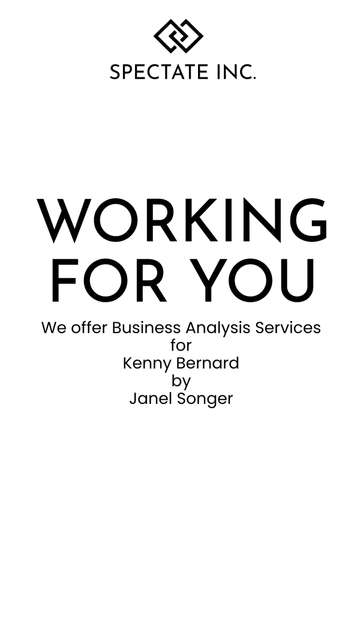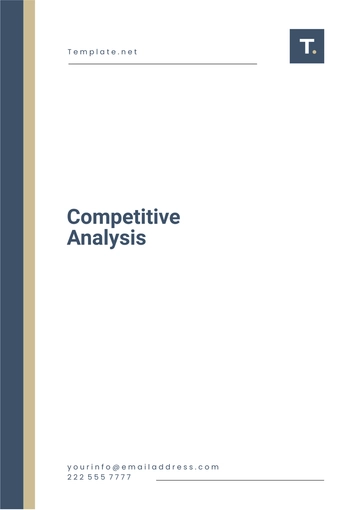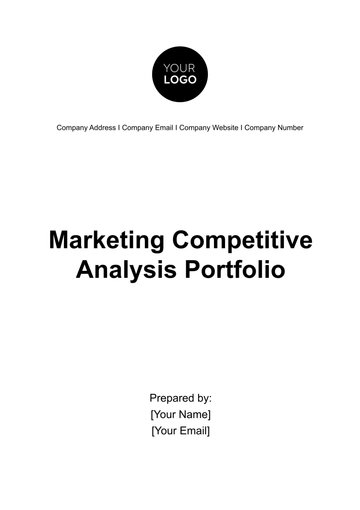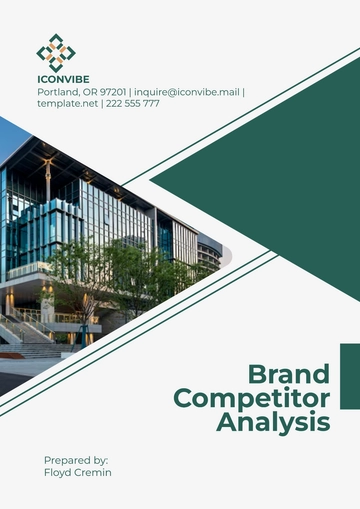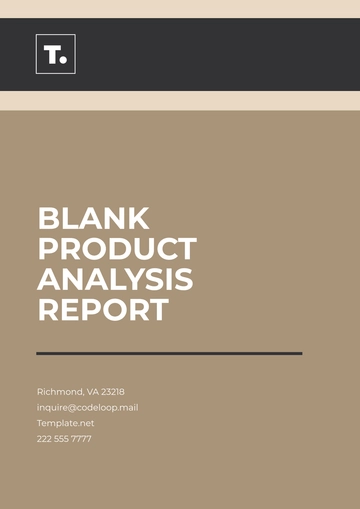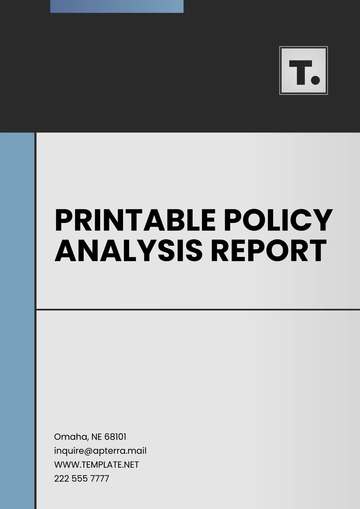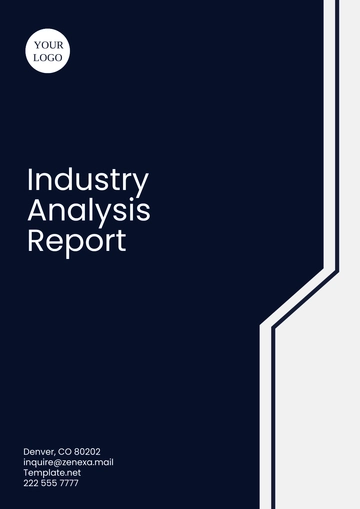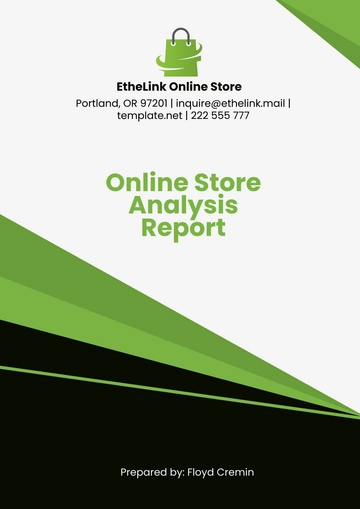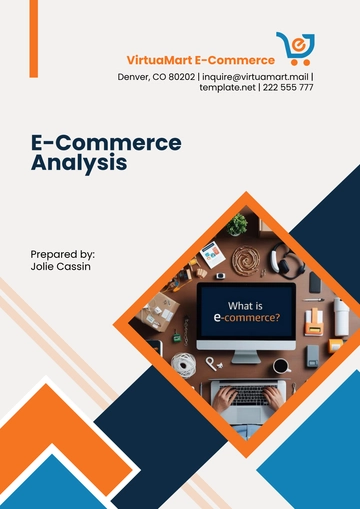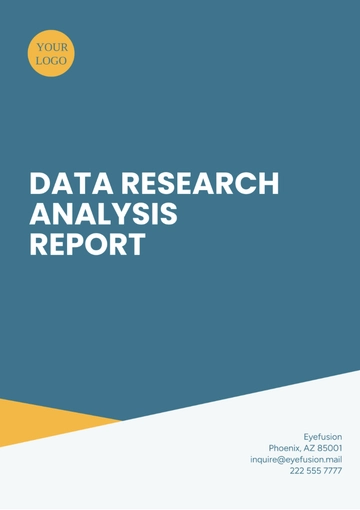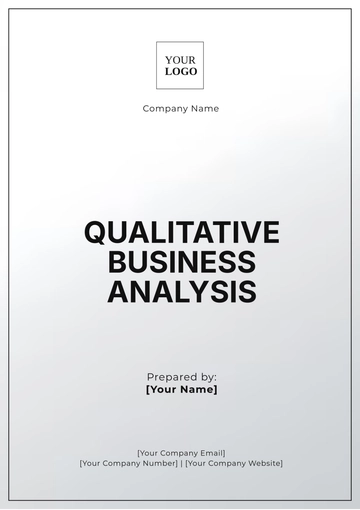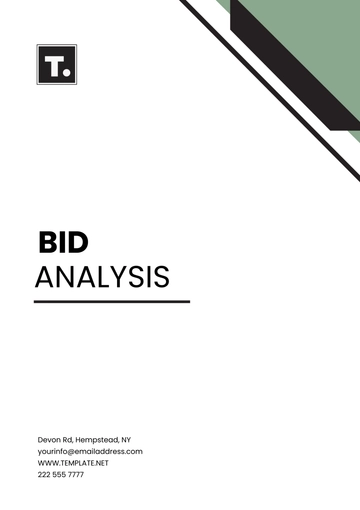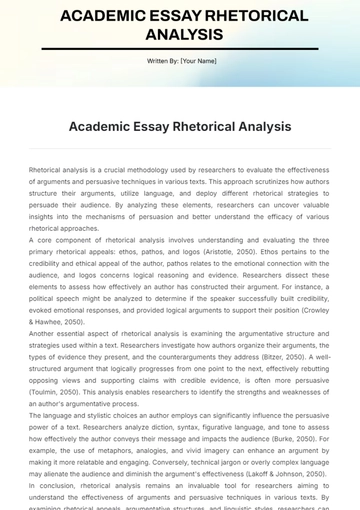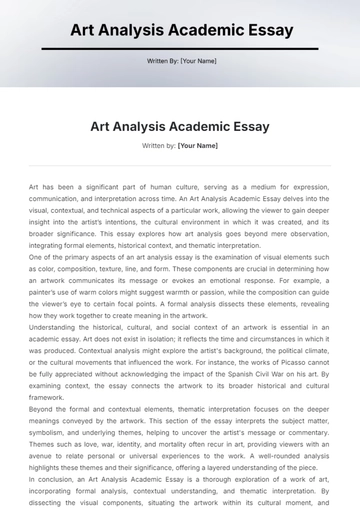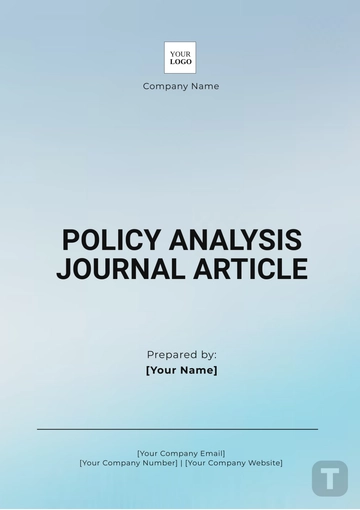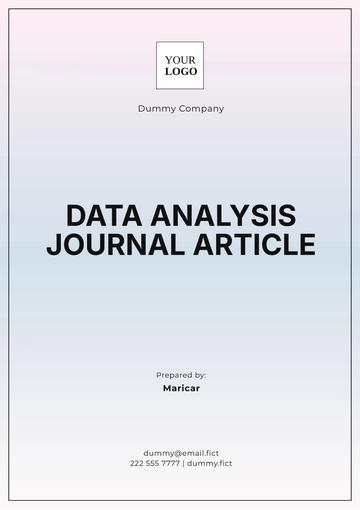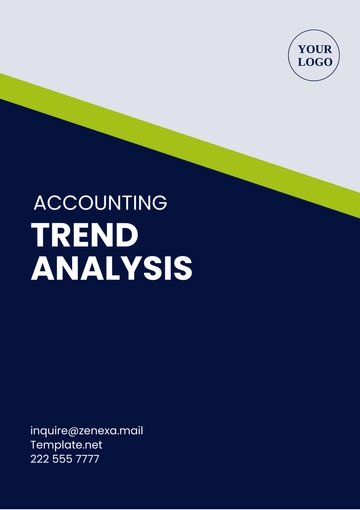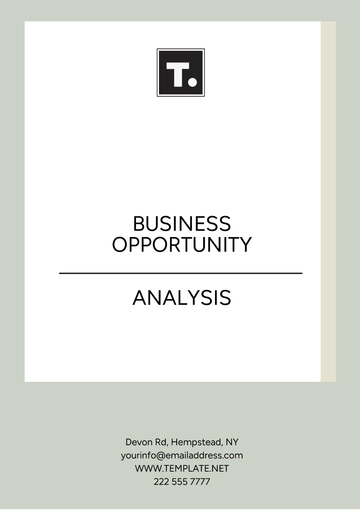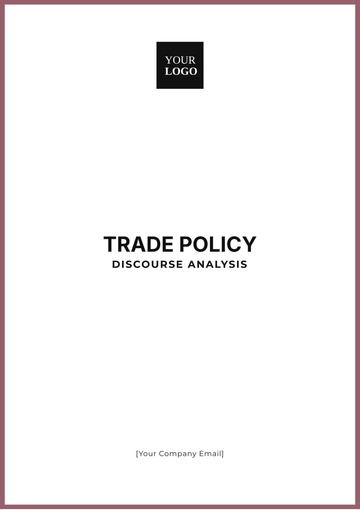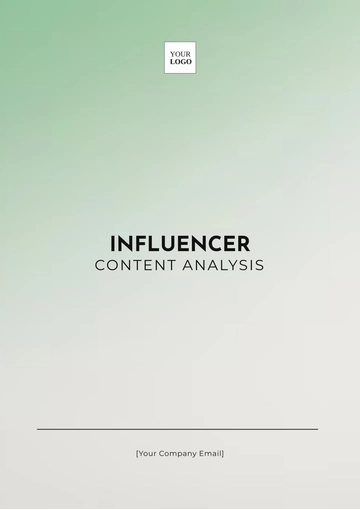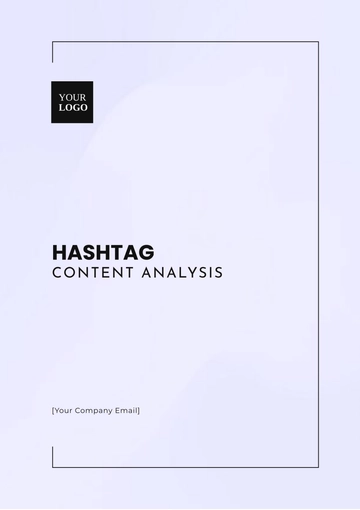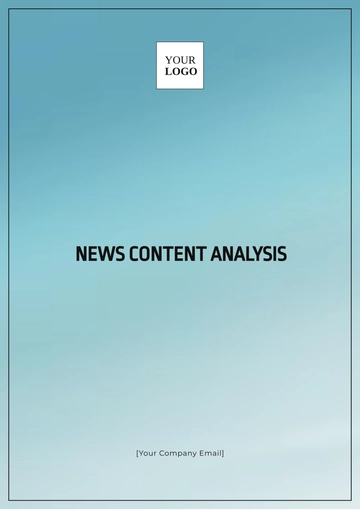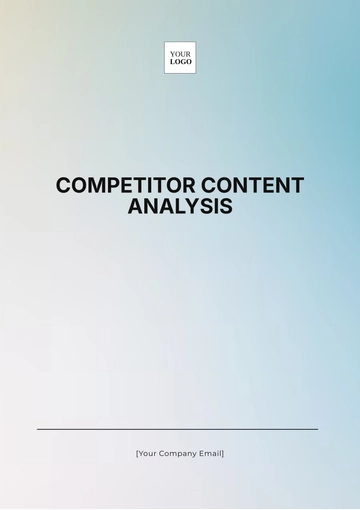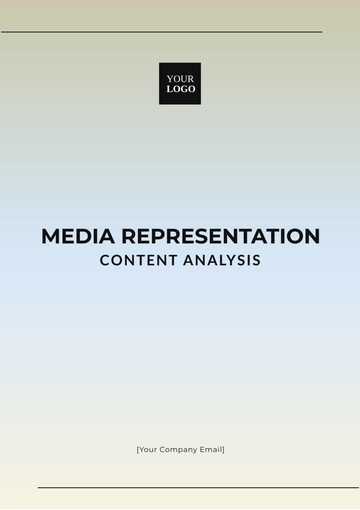Free Policy Analysis Consultant Brief
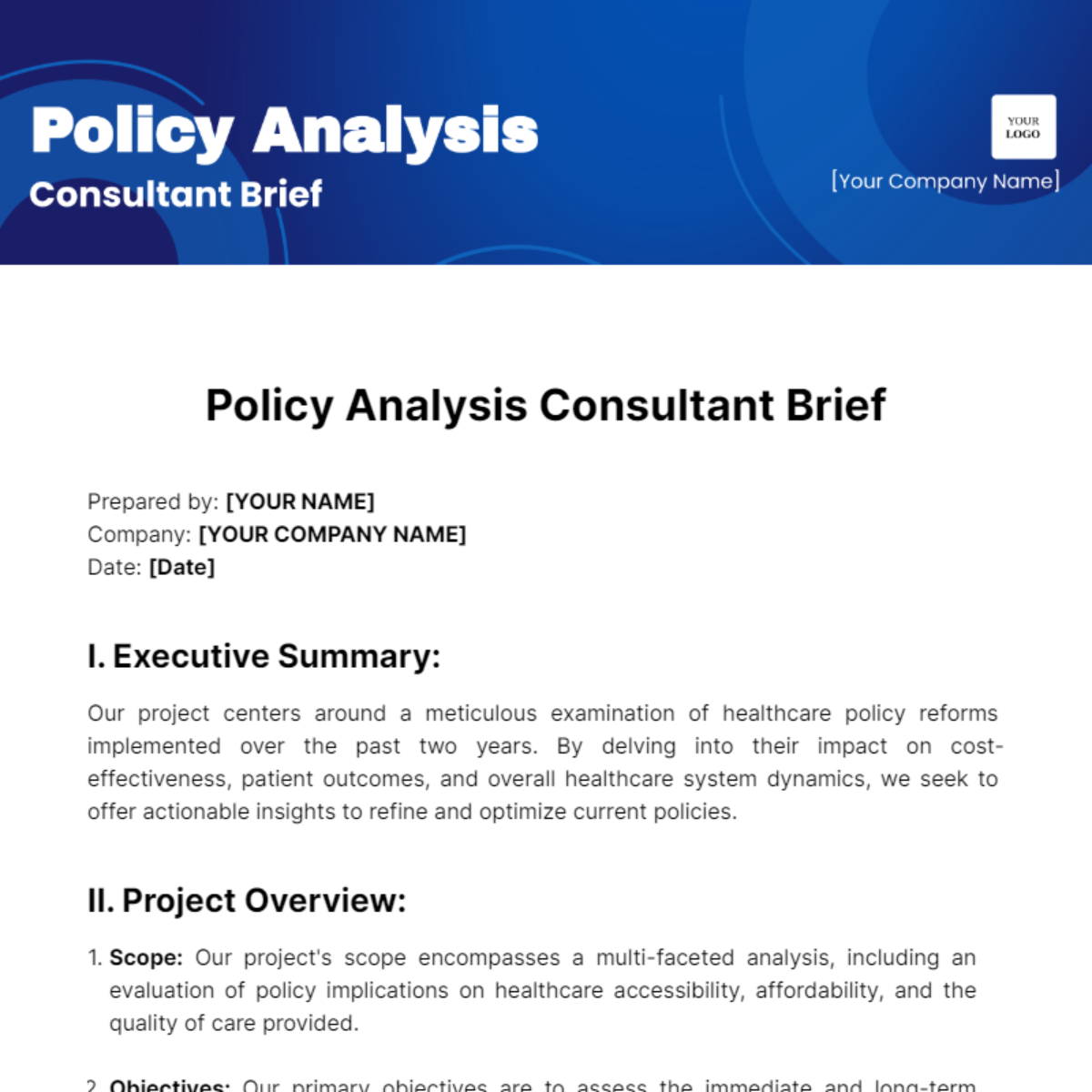
Prepared by: [YOUR NAME]
Company: [YOUR COMPANY NAME]
Date: [Date]
I. Executive Summary:
Our project centers around a meticulous examination of healthcare policy reforms implemented over the past two years. By delving into their impact on cost-effectiveness, patient outcomes, and overall healthcare system dynamics, we seek to offer actionable insights to refine and optimize current policies.
II. Project Overview:
Scope: Our project's scope encompasses a multi-faceted analysis, including an evaluation of policy implications on healthcare accessibility, affordability, and the quality of care provided.
Objectives: Our primary objectives are to assess the immediate and long-term effects of recent policy changes, identify areas requiring refinement, and formulate evidence-based recommendations to bolster the effectiveness of our healthcare policies.
III. Methodology:
Data Collection:
We will employ a comprehensive approach, combining quantitative methods such as surveys and data analysis with qualitative assessments through stakeholder interviews. Additionally, a thorough review of relevant reports and studies will ensure a holistic understanding.
Analysis Techniques:
Statistical analyses, trend assessments, and comparative evaluations will be employed to derive meaningful insights from the collected data, ensuring a robust and nuanced policy analysis.
IV. Timeline:
A detailed project timeline has been crafted, outlining key milestones and deliverables. With an anticipated completion date of [Date], we aim to provide timely and thorough insights, allowing for informed decision-making.
V. Budget:
The estimated budget for the project is $150,000, covering research costs, consultant fees, and the production of a comprehensive report. Regular financial updates will be provided to ensure transparency and meticulous budget management.
VI. Stakeholder Engagement:
Active collaboration with key stakeholders, including government health agencies, healthcare providers, and patient advocacy groups, will be prioritized. Regular briefings and feedback sessions are integral components of our approach to maintaining open lines of communication.
VII. Risk Management:
In anticipating potential challenges, we have outlined a comprehensive risk management plan. This includes proactive measures and contingency plans to address any unforeseen obstacles that may arise during the project.
VIII. Conclusion:
In conclusion, I am confident that this policy analysis consulting project will not only meet but exceed expectations. Your support and engagement throughout this process are invaluable. Should you have any questions or require further clarification, I am readily available.
Thank you for your attention and support.
- 100% Customizable, free editor
- Access 1 Million+ Templates, photo’s & graphics
- Download or share as a template
- Click and replace photos, graphics, text, backgrounds
- Resize, crop, AI write & more
- Access advanced editor
Discover the ultimate tool for policy analysis consultants – the Policy Analysis Consultant Brief Template from Template.net. This editable and customizable resource streamlines your workflow, ensuring precision and professionalism. Crafted for efficiency, it's seamlessly editable in our Ai Editor Tool, empowering you to tailor each detail with ease. Elevate your consultancy game effortlessly.
